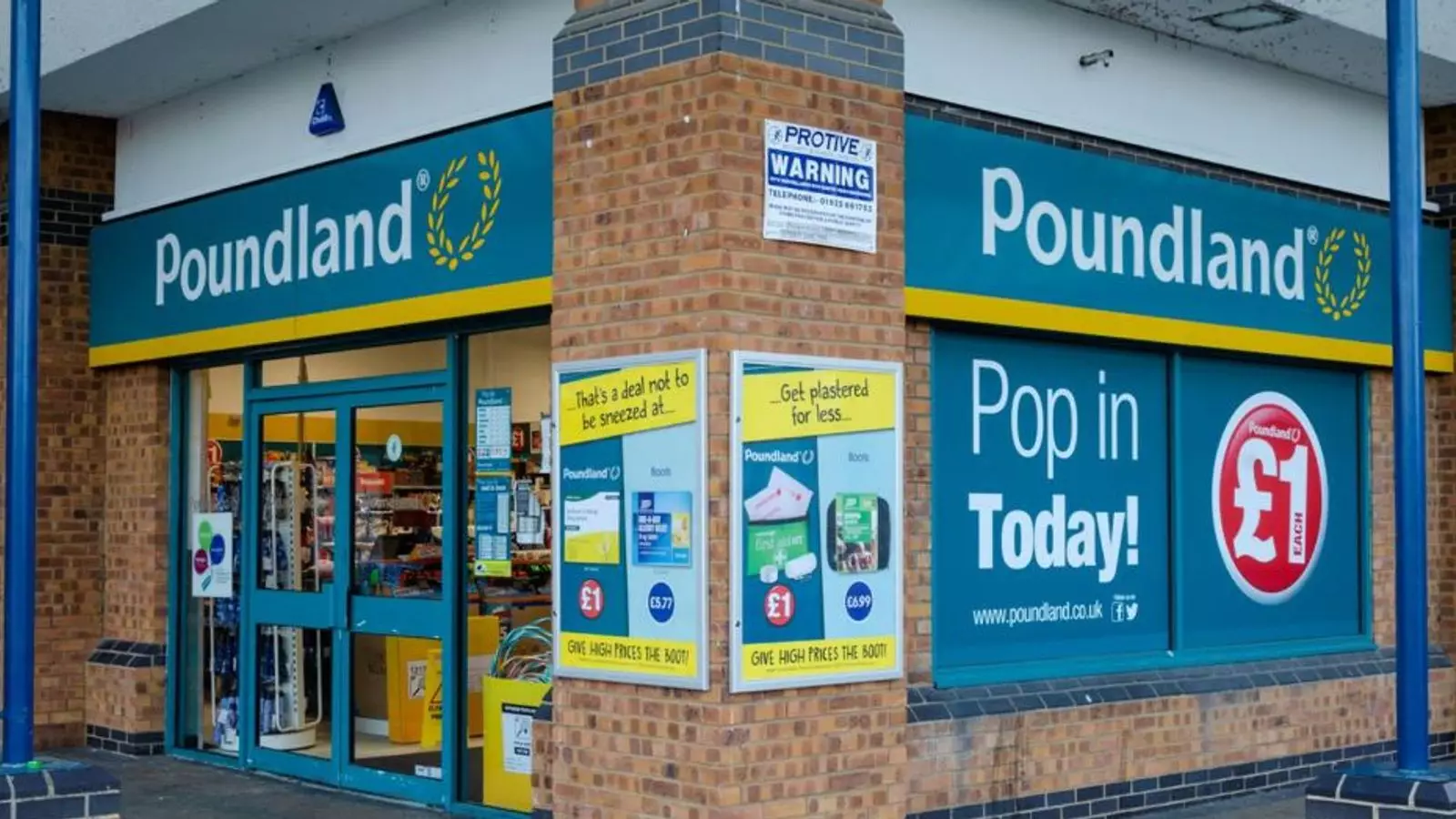In the fiercely competitive landscape of discount retail in the UK, chains such as Poundland are facing unprecedented challenges. Owned by Pepco Group since 2016, Poundland is currently grappling with a significant downturn in sales, leading to a growing concern about its future viability. The recent actions taken by Pepco Group, including hiring financial consultants from AlixPartners, signal the seriousness of the situation. As the company seeks solutions to invigorate its operations and sales strategies, it may face fundamental changes that could alter the discount retail landscape forever.
Poundland, which operates over 800 stores and employs around 18,000 individuals, has been a staple in Britain’s discount retail market, pulling in approximately €2 billion in sales last year. However, recent reports indicate a troubling 7.3% decline in like-for-like sales during the crucial Christmas trading period. Such a downturn raises pressing questions about consumer habits and the store’s competitive edge in a market brimming with alternatives like Home Bargains and B&M.
The retail environment has become increasingly challenging, exacerbated by rising operational costs and intense competition. As a result, Pepco Group is exploring a variety of drastic measures that may include store closures or even selling the business outright. The engagement of AlixPartners suggests that there is more than just a superficial analysis at play; a deep restructuring might be on the horizon, begging the question – what is the future of Poundland?
In the wake of significant sales declines, a strategic review is critical. Pepco Group’s announcement that there will not be an expansion of the store portfolio in the short term reflects a cautious approach. Instead, the company is focusing on recovering trading performance by delving into cost assessments and a thorough evaluation of its competitive positioning. This indicates a recognition that merely expanding the reach of Poundland without addressing underlying issues may not yield the desired results.
While increases in fast-moving consumer goods (FMCG) and general merchandise have been introduced as part of efforts to rejuvenate the brand, it’s essential to investigate if these additions genuinely resonate with the target demographic. The challenge lies in developing a customer proposition that stands out in an oversaturated market. Without a clear strategy and decisive action, the risk of further erosion of market share looms large.
Future Directions: A Need for Innovation
The bleak sales figures reported by Pepco Group come as a wake-up call for all stakeholders involved. In an era where consumer preferences are shifting rapidly towards online shopping and experiential retail, Poundland must rethink its strategy. The traditional discount model may need a comprehensive overhaul to adapt to modern buying behaviors.
Innovative concepts—such as integrating more tech-savvy shopping experiences or enhancing online sales capabilities—could serve as lifelines. Given the challenges faced, rebranding initiatives or partnerships with local vendors may boost the appeal of Poundland’s offerings beyond the fixed £1 pricing model, allowing for greater flexibility and consumer engagement.
Interestingly, while Poundland struggles, the broader Pepco Group, which includes brands like Dealz, is reported to perform well with robust sales growth. This juxtaposition raises questions about internal factors specific to Poundland that may be contributing to its decline. As Pepco’s executives prepare to unveil their future strategy in Poland, all eyes will be on how they plan to galvanize Poundland back to profitability.
Ultimately, the path forward may be laden with challenges. However, with a decisive focus on strategic overhauls and innovative consumer outreach, Poundland might find its footing once again in the competitive discount retail domain. As the retail landscape continues to evolve, the need for adaptability and innovation has never been more crucial, not just for Poundland but for all players in the market.


Leave a Reply